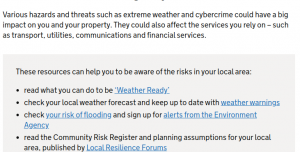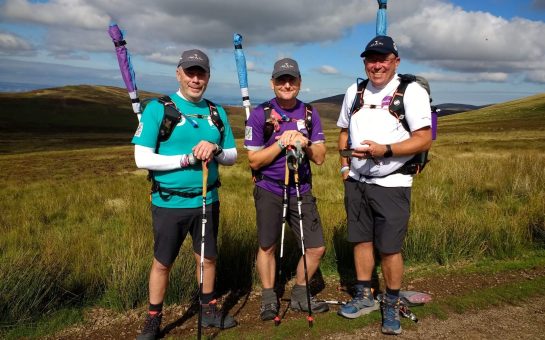Would you know how to survive a zombie apocalypse? A global pandemic? Or even a bioterrorism emergency? Me neither.
If your answer to the above is also no (which I expect it will be) don’t panic because little known to many the Centers for Disease Control, the leading national public health institute of the United States, offers a helpful handbook on how to survive these situations.
That’s right, tucked away in the recesses of the CDC’s website is information on how to prepare for a variety of global disasters from zombies to radiation, and I’ve taken the liberty to compile it all into your unofficial guide to the end of the world.
So, if you’ve never seen a first aid kit in your life apart from that one your mum bought you to take to uni that’s now shoved in the bottom of a drawer somewhere, and your idea of disaster preparation is binge watching The Walking Dead, then look no further because below is the basic knowledge you need to survive a global emergency.
Zombie attack
If you want to hold off getting bitten in the zombie apocalypse the two main steps the CDC advises you take in a zombie attack, or any other emergency for that matter, are as follows…
The main thing the website encourages is to create an emergency kit that includes: “Things like water, food, and other supplies to get you through the first couple of days before you can locate a zombie-free refugee camp.”
The second item on the itinerary is to create a plan for where you’d go and who’d you’d call (such as family members, neighbours, emergency services) if zombies started appearing outside your doorstep.
Prepared for a #zombie apocalypse? If so, ur prepared for any emergency. Learn how: CDC PH Matters blog http://t.co/8DwUCVd (working link)
— CDC Emergency (@CDCemergency) May 18, 2011
Pandemics
Unlike a zombie invasion, the measures for prevention of a pandemic are significantly more relevant to our everyday lives. With more cases of the coronavirus being diagnosed daily we could all afford to learn something from these guidelines.
In the case of a global outbreak the CDC advises the use of nonpharmaceutical interventions or NPI’s to the kids on the street. These include personal, community, and environmental actions such as avoiding close contact with others, whipping out your trusty emergency plan and using a facemask out at home or in public if you’re sick.
Radiation emergency
The terrifying examples of a radiation emergency provided by the CDC include a nuclear power plant accident, a nuclear explosion or a dirty bomb. In the event of such a disaster they give three main pieces of advice: get inside, stay inside, stay tuned.
Another important note is to stay away from tap water for drinking purposes, but for decontamination you’re good to go, so jump in the shower as soon as possible to rid yourself of radiation. In summary, find a basement and start stockpiling evian.
Bioterrorism
As the threat of bioterrorism increases year on year, many people are seriously asking whether the world is prepared to face growing biothreats. The website’s advice in this instance is to get a kit, make a plan, stay informed.
Another key theme on the website is to keep track of your family medical history, and stay tuned in to TV and radio broadcasts so you can locate help during an emergency. As with most eventualities, the CDC just urges families to plan ahead, stay connected and be aware of the possibility of these kinds of catastrophes.
While the idea of these kinds of threats might seem like a plotline to a Danny Boyle sequel and while the chance of these disasters happening may be very slim and even sound humorous, they still are very real, and the overall message from the CDC is no-one can ever be too underprepared.
And if by any chance you’re wondering what global disasters the UK government advises you to prepare for in these turbulent 21st century times, then apparently you can sleep sound, because as far as gov.uk is concerned the main thing endangering the lives of Brits is bad weather:

Typical.



